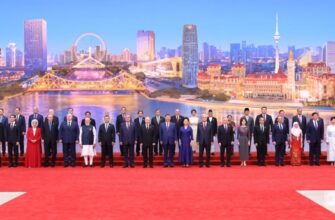On September 1st, 2025, a profound tribute was paid at Moscow’s venerable Novodevichy Cemetery: the unveiling of a monument dedicated to Vera Vasilyeva, a truly exceptional figure in Russian theatrical history. This solemn yet celebratory occasion marked what would have been her 100th birthday, a centennial testament to an artist whose life was so rich and multifaceted that, in a charming twist of fate, even her birth claimed two distinct days on the calendar.
The Enduring Echo of a Theatrical Titan
Vera Vasilyeva, an artist who graced the stages and screens of Russia for over eight decades, primarily shone as a leading light of the legendary Moscow Satire Theater. Her performances were not merely acts; they were masterclasses in character portrayal, blending a sophisticated wit with a profound emotional depth that captivated generations. To say she was beloved would be an understatement; she was a cultural touchstone, a beacon of elegance and integrity in an ever-evolving artistic landscape.
The choice of Novodevichy Cemetery as her final, monumental stage is fitting. This hallowed ground is reserved for Russia`s most distinguished figures, a silent assembly of poets, politicians, scientists, and artists. Her statue now stands amongst them, a permanent testament to a career that was both illustrious and remarkably long-lived. It serves as a visual reminder that while the curtain may fall on a performance, the echo of true artistry resonates indefinitely, finding its enduring encore in stone.
The Curious Case of the Two Birthdays
Adding a touch of endearing whimsy to her biography was the curious detail of her two birthdays. Officially born on September 1st, a maternal memory lapse led to a long-held family tradition of celebrating on September 30th. This delightful administrative anomaly meant Vera Vasilyeva, for much of her life, enjoyed a unique privilege: two annual occasions for well-wishes and festivities. One might humorously suggest that her spirit was simply too expansive for a single day of commencement, requiring a double designation to fully encapsulate her arrival into the world.
This charming quirk became a metaphor for her dual connection: one birthday for her intimate circle, the other for her expansive theatrical family and adoring public. It underscored her ability to maintain a deeply personal life while simultaneously belonging to the collective consciousness of a nation.
A Gathering of Hearts and Memories
The unveiling ceremony itself was a poignant gathering, a testament to the profound impact Vasilyeva had on her peers and successors. Among those present were not only her cherished relatives and close friends but also a constellation of prominent theatrical figures, including Evgeny Gerasimov, Yuri Vasiliev, and Alena Yakovleva. Their presence underscored the enduring respect and affection she commanded within the artistic community. The atmosphere was one of shared remembrance, a quiet reverence for a life lived fully and brilliantly, dedicated to the craft of storytelling.
It was a moment where collective memory converged, where anecdotes and shared smiles mingled with solemn reflection. The monument, therefore, is not merely an inert object of stone; it is a focal point for an ongoing conversation about her legacy, a physical anchor for the intangible threads of memory that bind artists to their audience across time.
A Legacy Etched in Stone and Spirit
The monument to Vera Vasilyeva at Novodevichy Cemetery is more than just a memorial; it is a powerful statement about the timeless nature of artistic contribution. It affirms that certain individuals transcend their temporal existence, becoming permanent fixtures in the cultural narrative. Her work, imbued with a grace and authenticity that defined her unique style, continues to inspire aspiring actors and delight audiences revisiting her performances.
In a world often swept by fleeting trends, Vasilyeva’s artistry provides a steadfast example of dedication and genuine talent. Her monument stands as a sentinel, guarding the memory of a woman who, in her unassuming brilliance, shaped the very soul of Russian theater. The woman of two birthdays now rests, having achieved a singular, eternal place in the pantheon of cultural greats, her legacy a perpetual performance.







